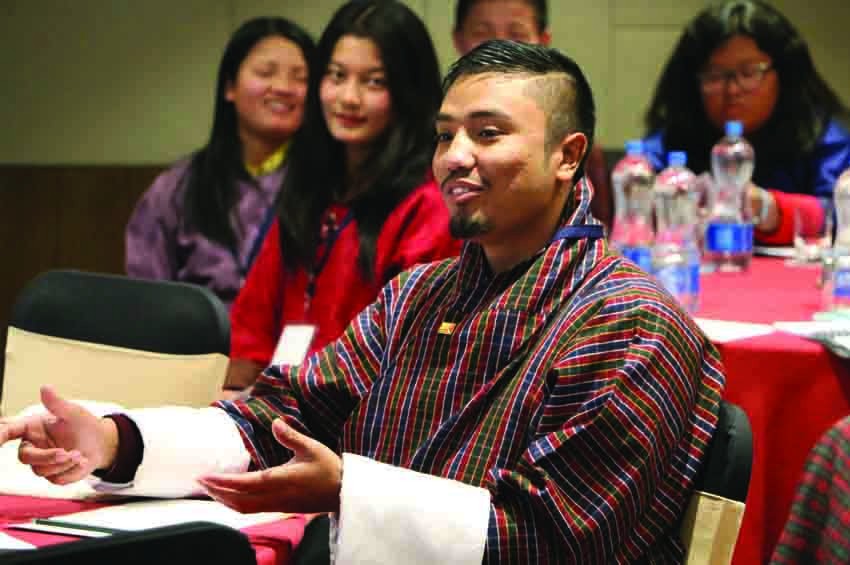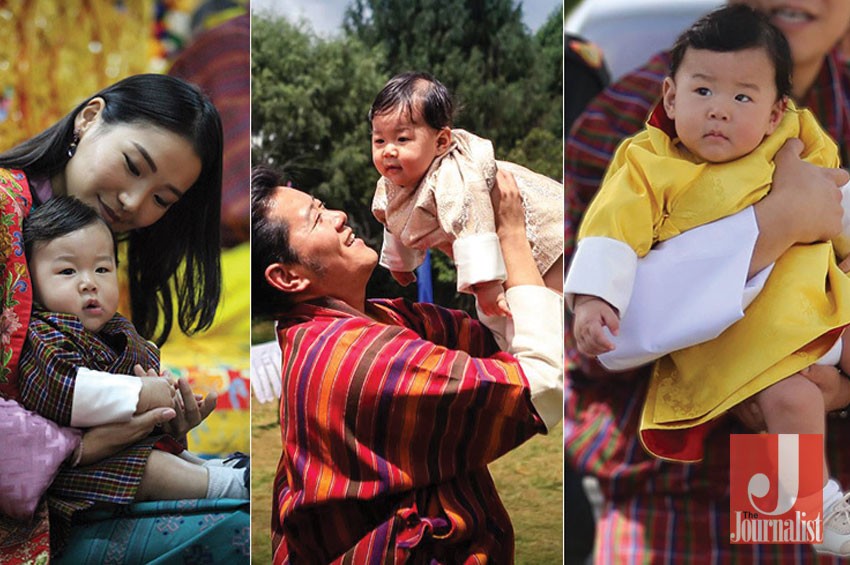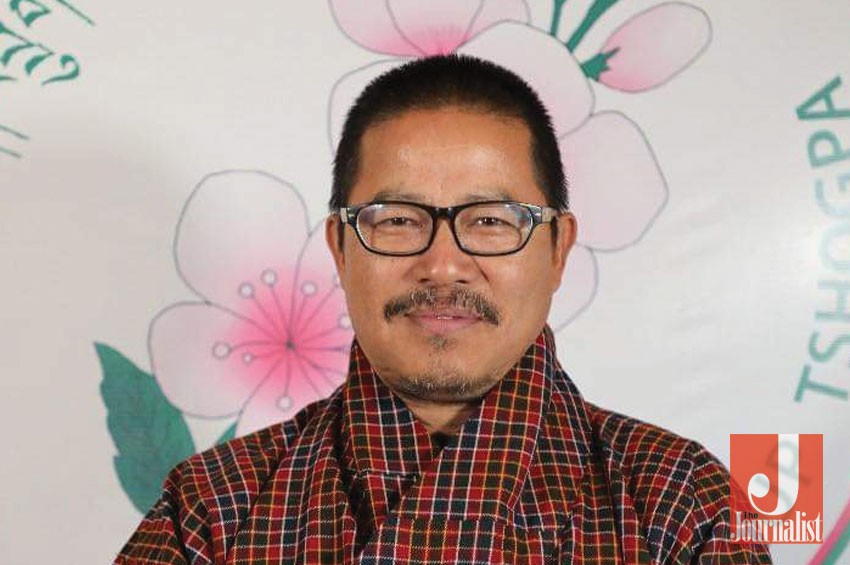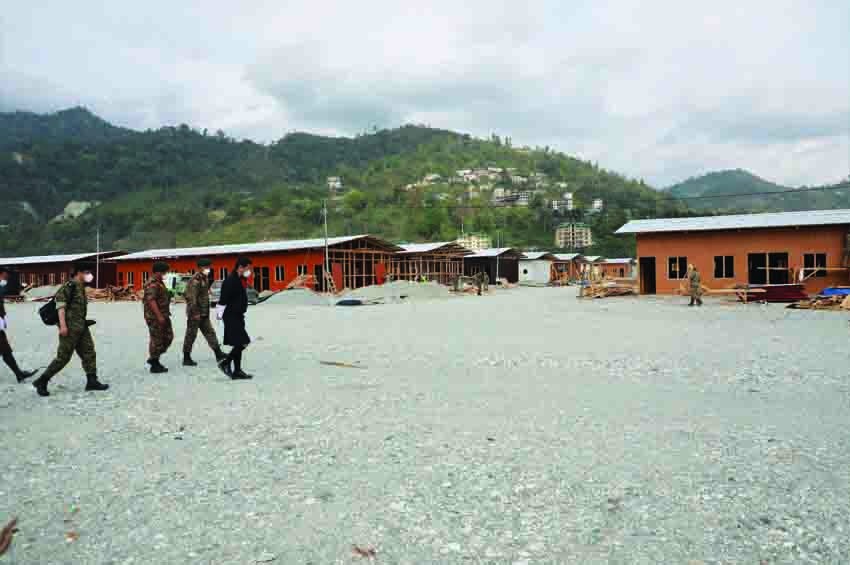By Ugyen Tenzin
Allegations of corruption in the electoral process including aspiring candidates and their supporters transgressing electoral laws surface in all elections. Complaints are lodged with the election commission of Bhutan (ECB). But for perhaps the first time, a youth who contested in the recent local government (LG) elections shares his experience and unveils the good, bad and ugly elements in elections. Underlining that election results are determined by “invisible hands” and other factors, which do not fit in the “category called good”, he highlights the darker aspects of elections and even the dangers of participation.
“I am not generalizing and saying that what I saw and experienced must be happening in all parts of Bhutan. Still, the probalities are high and I am sharing my experiences to bring truth to the forefront and enable responsible agencies to do something,” Sonam Lepcha, 26, who contested from Dramzedganag-Medgang chiwog for the post of Norbugang gewog’s gup, Samtse, says.
A 2017 graduate in economics and geography from Sherubtse College, Kanglung, Sonam says that his love for politics began since the first LG elections in 2011. President of Sherubtse College’s Geographical Society, a linguist and someone who can speak on almost every topic, Sonam says that no-one influenced him to contest in the recent elections. .
“It was my dream to contest for the Gup’s position as it would provide opportunities to remain connected with the people and serve them if you win,” Sonam said, adding that a LG leader can do more for the community than national leaders. Sonam says that he believed “his calling had arrived.” As lord Tennyson said, “the old order changeth yielding place to the new, and I ardently believed that it is time for our generation to take on the mantle of leadership,” he said. However, Sonam did not imagine what awaited him.
“I saw that the elections were like the market, where invisible hands played the defining role,” Sonam mentioned, adding that those without resources, especially money, have either very little or no chance to win at all. According to Sonam, contestants are linked to one political party or the other. “After people knew that I had no affiliation with any party, I received a call from someone claiming to be a supporter of one political party and asking me if I needed anything, including money,” Sonam says, adding that he “humbly declined.”
According to Sonam, people questioned if some elite family influenced him to contest. “When I replied that I am on my own, no one believed, because all the others are linked to someone or the other.”
“I was also threatened by supporters of other candidates and at two instances I was nearly run over by cars as I was walking. It may have been coincidences, but you never know,” he said, adding that as he slept he remembered an incident of the 2018 general elections, where the current Prime Minister’s car was allegedly almost hit by a truck while going to Pemagatshel. “I was scared,” he added. When asked why he did not lodge a complaint, Sonam replied that he wanted to create a good precedence. “Moreover, I believe that the people should complain and ensure that the power of their thumb triumphs,” he remarked, adding that after sometime, his campaign became like “voter education.” “I found out that almost 70% of the people still lack voter education,” he stated. “Why damage the reputation of respected elders and the parties and individuals they represent,” he said, adding there were few incidences where other candidates contesting for the gup’s position complained about filthy practices.
Further, Sonam underlined that he “pitied innocent people.” “Through hook or crook, people are made to vote for a candidate by coordinators and supporters of an aspirant. They are told that it is very easy to find out who voted for whom and people believe them. There is intimidation and threat,” he added.
Another element which Sonam says disheartened him is “politics along religion and caste.” “Even at this age, people are divided along these lines and politicians make the best use of it.” He adds that capabilities, qualifications and even experience “are out of the box.” “The invisible hands make all the difference and I would say that the community and nation loses, as capable people do not win.”
On the other side, Sonam mentions that it is important to stay in the village for some period. “People know you and even the invisible hands will then push you.”
On any individual positive outcome of the election, Sonam says he was happy to get 19.21% of the votes. “Of all, I know that the people who voted for me are genuine, not swayed by the invisible hands and bold. And what overwhelmed me the most was winning the hearts of the people,” he says, referring to anecdotes where people came to him, saying they could not vote for him due to “certain situations,” noting that the situations are “the invisible hands.”
On the upcoming general elections of 2023, Sonam says he definitely wants to participate. “I have some important objectives, of which the most important is to cut off the invisible hands,” he mentioned, adding that people from his gewog wants him to participate. “If at the gewog level, such things are happening, I can’t imagine what must be happening at the national level,” he underlined.
Apart from his interest in politics, Sonam is a social worker, too. In 2020, he mobilized the Proylang Mutanchi Rong- Lepcha family who contributed Nu. 103,000.00 to His Majesty’s kidu fund. “I firmly believe that politicians should have the social worker’s blood. If not, what can they do for their communities and the country,” he said.
Copyright © 2024 The Journalist. All Rights Reserved.













